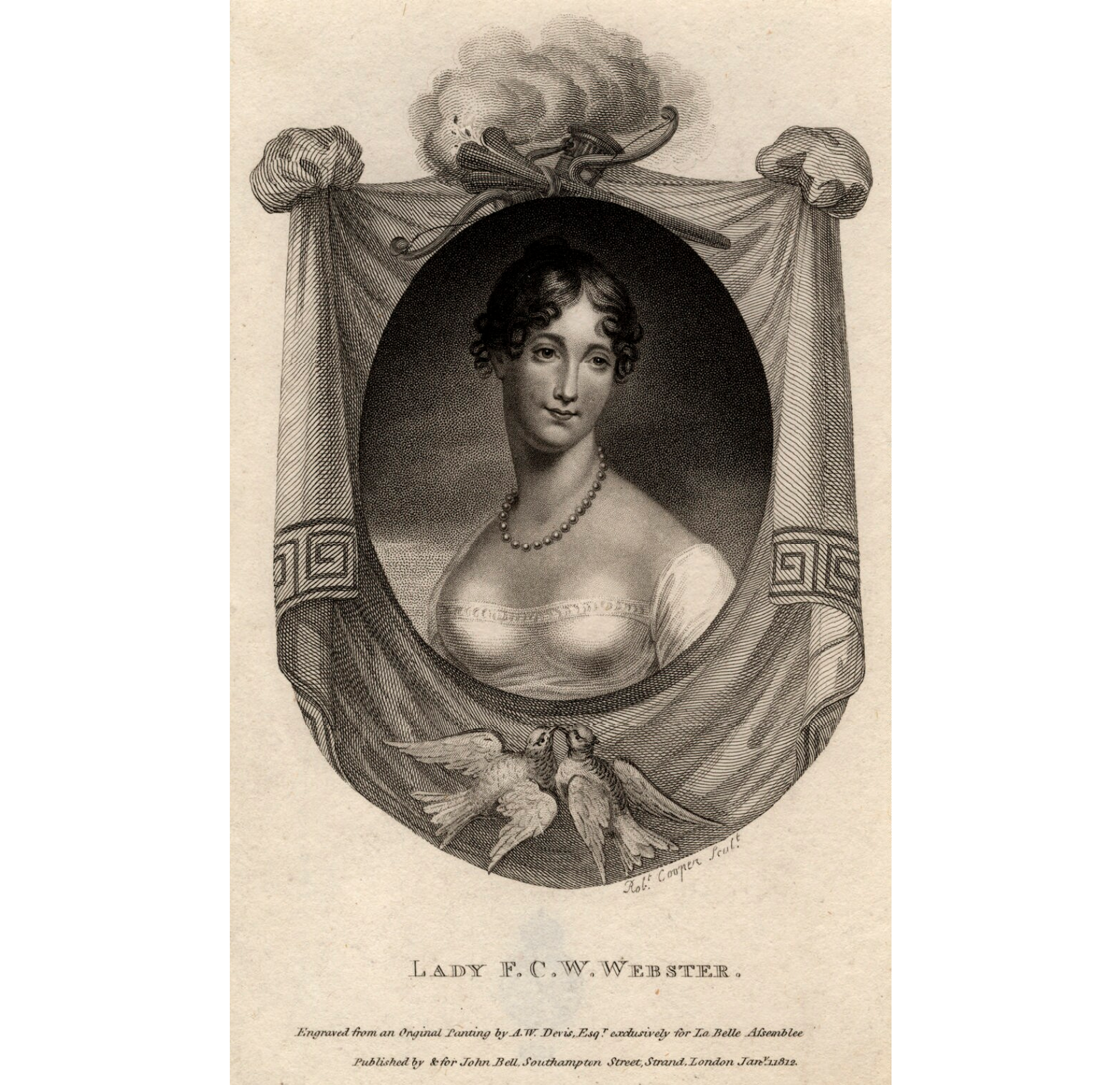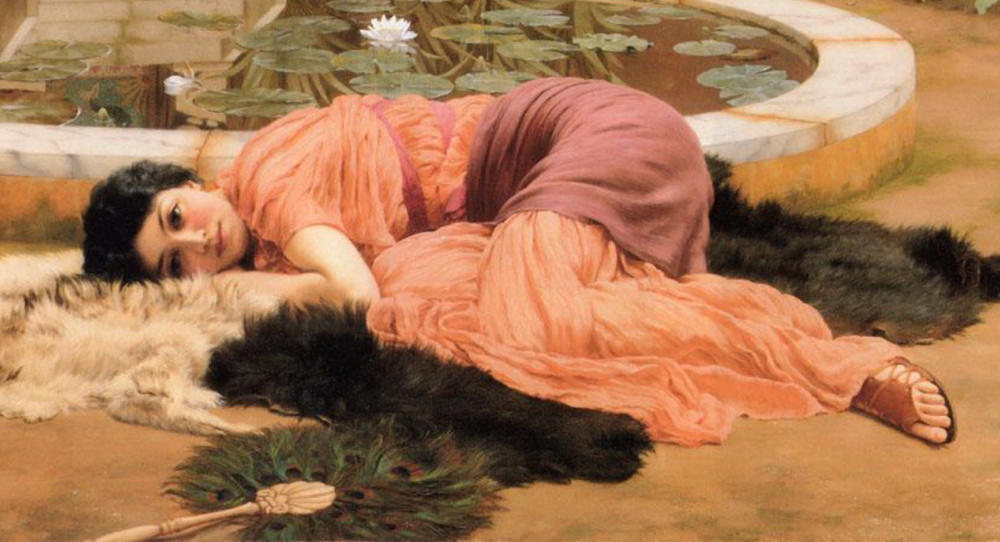Lord Byron, is often described as an English romantic poet. That is true; he was one of the great poets of the Romantic movement.
Unfortunately, many people take 'romantic poet' to mean a man perpetually besotted, when this is not strictly the truth. The Romantic movement placed great emphasis on emotion. Nobody ever said which emotion, let alone that it had to be romantic or, for that matter, positive in any way. In our analysis of When We Two Parted, you will see that poems of this style could be very dark, much like Porphyria's Lover, and this is another poem often compared with When We Two Parted.
The When We Two Parted meaning has been debated by many, but the themes are clear. It follows love and betrayal while also introducing concepts like time, memory and loyalty. We explore both the themes and linguistic tools below and teach readers:
- what this poem is about
- the context and whose perspective it's written from
- key themes of the poem
- the literary techniques & linguistic devices used by the writer

When We Two Parted by Lord Byron
In silence and tears
Half broken-hearted
To sever for years,
Pale grew thy cheek and cold,
Colder thy kiss;
Truly that hour foretold
Sorrow to this.
The dew of the morning
Sank chill on my brow -
It felt like the warning
Of what I feel now.
Thy vows are all broken,
And light is thy fame;
I hear thy name spoken,
And share in its shame.
They name thee before me.
A knell in mine ear;
A shudder come o'er me -
Why wert thou so dear?
They knew not I knew thee.
Who knew thee too well -
Long, long shall I rue thee,
Too deeply to tell.
In secret we met -
In silence I grieve,
That thy heart could forget,
Thy spirit deceive.
If I should meet thee
After long years,
How should I greet thee?
With silence and tears.
The poem recalls the end of a previous relationship that the narrator (thought to be Byron himself) still feels deeply about. The relationship was secret. Ever since the break-up, the spurned lover has been unable to outwardly express his sadness. Byron also feels that his lover was untrue to him and is still hurt, long after the events.
Analysis of When We Two Parted
In a sense, we might believe this work to be incorrectly titled. Lord Byron fairly glosses over the parting, quickly moving on to how things stand now. And then, he reflects back on the ill-fated relationship. But had he titled the poem simply 'We Parted', he would have deprived himself of the chance to establish alliteration.
It's no accident that most of the alliterated words come in pairs, not in threes or greater configurations. This poem describes a secret relationship between two people. The word pairs in this work's alliterations mean to represent both parties. But that's not the only linguistic sleight of hand this author presents.
Working with a private English tutor for GCSE poem analysis offers invaluable guidance and personalized support, enhancing understanding and boosting exam success.

He uses opposite words to describe both parties. For instance, the share-shame that closes out the second stanza represents the one who shared versus the one who was shamed. In the first stanza, the cold-colder word pair signals the progression of the lovers' growing distance.
To start the last stanza, the secret-silence word pair underscores that was fully aware of the relationship's nature. It shows his willingness to first take part in and then to perpetuate the relationship's secrets. It's quite likely he chose to do so to shield himself from public scrutiny rather than to protect his former lover.
The last stanza gives further proof of his feeling of betrayal by using sibilant sounds. The S sound is often associated with snakes hissing. Snakes have an unfortunate link to everything evil and deceptive. Lord Byron starts the stanza with 'secret-silence' and, midway through, inserts the spirit-deceives alliteration. This double pair, coming at the end of the poem signals that he meant to sound like he was grieving but he's really just spitting mad.
Byron's use of sibilance here creates an uncomfortable sound and one that reminds us of a 'hiss"'. The idea of a pale cheek and cold kiss conjures images of death, symbolising the death of the relationship. He also uses this in terms like 'spirit-deceives' and 'secret-silence'.
Form
The poem has four stanzas of eight lines each, essentially forming two sets of quatrains per stanza. But these lines are rather unusual in their form. They are largely written in falling rhythm. The lines tend to have two 'feet', meaning that you can scan the poem as dactylic dimeter but the lines are irregular in length, pattern and weight.
You can feel this by counting syllables (5, 5, 5, 5, 6, 4, 6, 4). Or, more obviously, by counting stressed syllables:
'When we two parted | In silence and tears | Half broken-hearted | To sever for years'.
This broken pattern gives the poem a stilted, stop-start, uncomfortable rhythm that begins to move, then hesitates, then moves on again. It reflects the poet's efforts to move on from his memories. Short lines are particularly powerful at slowing the reader down and underlining the point of the poem.
The rhyme in the lines (a relatively straightforward ABABCDCD scheme) means that the lines end with a particular heaviness or finality. This effect adds to the stilted quality of the writer's thoughts. Alfred Lord Tennyson uses a similar technique in The Charge of the Light Brigade, but for different reasons. And to create a different, more frenetic effect.
Unlock the full potential of GCSE poem analysis with the expertise and tailored assistance of a dedicated English tutor

Language
Byron uses alliteration and consonance to reinforce key words and images in the reader's mind. He is convinced that he 'shares' in the 'shame' of his lover, who has now lost his respect. Shame is further reinforced by the internal rhyme with 'name'. That word is then repeated in the next stanza to highlight the 'knell' - the ringing of a bell. This word has a very formal, even funereal connotation. Especially when it's coupled with the archaic language of 'mine ear' and 'Why wert thou so dear?'
It's ironic that her 'name' is now associated with the heavy weight of a metal bell because he also says 'light is thy fame'. Far from painting a contrasting image, Byron means that his lover's reputation ('fame') is now insignificant or unvalued ('light'). The verse has a complexity that intrigues and puzzles his reader. His lover's name is 'light' to him in one way and 'heavy' in another.
There are a number of different language tools used throughout the poem as the poet tries to convey a certain message, these include:
Sibilance to simulate blistering rage and create a cutting "hiss" sound when reading.
Aporia (doubt or conundrum) to expose the situation of still travelling in the same social circles as the one who betrayed him, yet never allowing himself to say anything about her - in defence or condemnation.
Consonance to reinforce key concepts, such as sharing in the 'shame' of his lover.
Emotions
A poem like this is more for the writer than for the reader. Expressing his 'grief' at the end of the relationship is an important way of coming to terms with what he feels. That makes this a very cathartic poem. Byron asks himself why he cared for his lover so much ('Why wert thou so dear?'). He implies that he has a very different attitude to her now even though he is struggling to change his feelings.
He is also deeply bitter about the breakup, believing that he will continue to 'rue' or regret the relationship for a 'long, long' time. He believes that it was his lover's fault that the relationship ended - that 'thy heart could forget, | Thy spirit deceive'. But we are unable to tell what objectively happened. This doesn't make the poem any less honest. It is essentially about the poet's feelings over the breakup, not about the breakup itself.
The poem is also very secretive. Byron addresses his past lover as 'thee', not using a name or giving any details. He explains that none of his friends knew of the relationship ('They knew not I knew thee' and 'In secret we met'). This secrecy has apparently made it hard for him to share his feelings as he is also ashamed of the breakup and his unhappiness. He feels guilty (he says he knew her 'too well') and hasn't forgiven himself or his lover. It is a good idea to go into any exam or coursework with a copy of When We Two Parted annotated as this can help you to remember the key points and quotes that make these points.
Time and Memory
In the second stanza, Byron sets the poem in the 'morning' of some day long ago and explains that the 'dew' dampened his head.
'It felt like the warning | Of what I feel now' – Lord Byron changes the tense of the verb 'felt' to make it 'feel' so that we have a sense of how the emotion has continued in time and is still felt today.
By the end of the poem, When We Two Parted, Byron looks towards the future, but is unsure of what will happen, not writing what 'will' or 'shall' be but what 'should' be 'if' another meeting ever takes place. He asks a rhetorical question which the poet answers with the same words he used to describe the parting 'years' ago: 'With silence and tears'. Clearly, he feels that on their next meeting, he will still be feeling the grief of the end of their relationship.
You can search for the best English tutor in Leicester here.

When We Two Parted Background

Most scholars interpret this work as autobiographical. Lord Byron was alleged to have had a passionate affair with Lady Frances Wedderburn-Webster. She was married and travelled with the aristocratic set. Her social status and position as a married woman failed to shield her from rumours of transgressions. She was widely believed to have had an affair with the Duke of Wellington.
'They name thee before me | A knell to my ear'
This line suggests that Lord Byron hears the gossip about his former lover. The historical record suggests that it was the affair with the Duke that was, in fact, the knell in his ear. We might assume that he now believes her to be cheap, of high birth but low morals. Thus, he rues having had anything to do with her. We might even intuit that he loathes himself for having been taken in by such a creature.
He's clearly realised he never meant anything to her. Even if she should grace him with her presence again, he states he should greet her with silence and tears. We find no such emotional gushing in Blow Blow Thou Winter Wind. Indeed, The Bard reduces love to mere folly. Lord Byron might have taken a page from that book.
Byron is remembered as an icon of literature and the Romantic movement, and When We Two Parted is considered one of his iconic works.
Summarise with AI:















This is good 👍
Thank you I want to ask about the kind of the poem is this poem lyric poem ,,?
Yes, When We Two Parted by Lord Byron is a lyric poem. Lyric poetry is a genre of poetry that expresses personal emotions or thoughts, often in the first person. Byron’s poem fits this definition as it reflects the speaker’s deep feelings of sorrow and loss following a painful separation from a lover. The poem is characterized by its emotional intensity, use of personal pronouns, and a focus on inner experiences, all of which are hallmarks of lyric poetry.